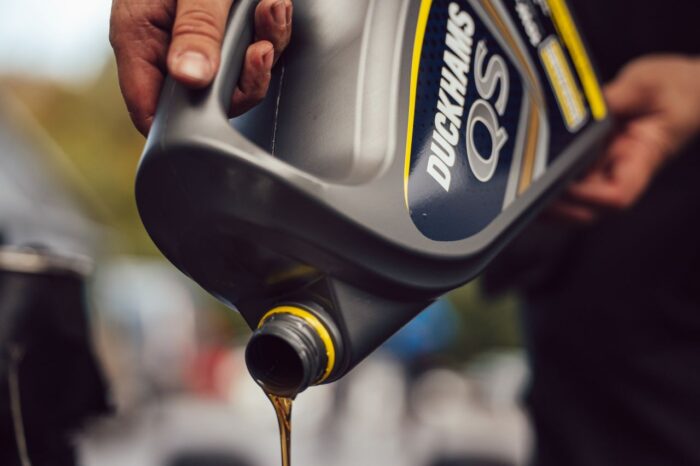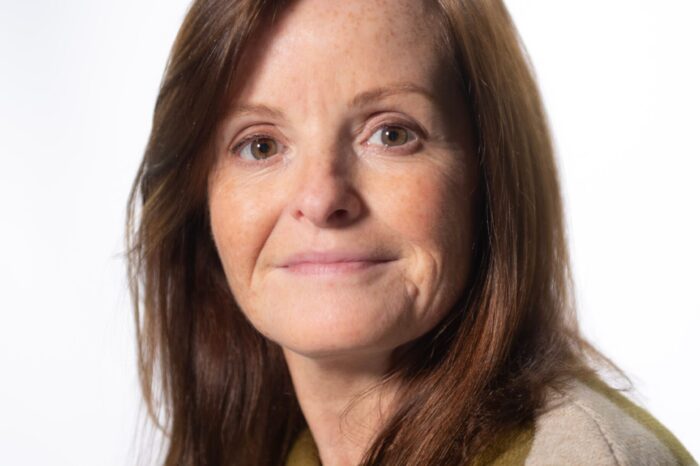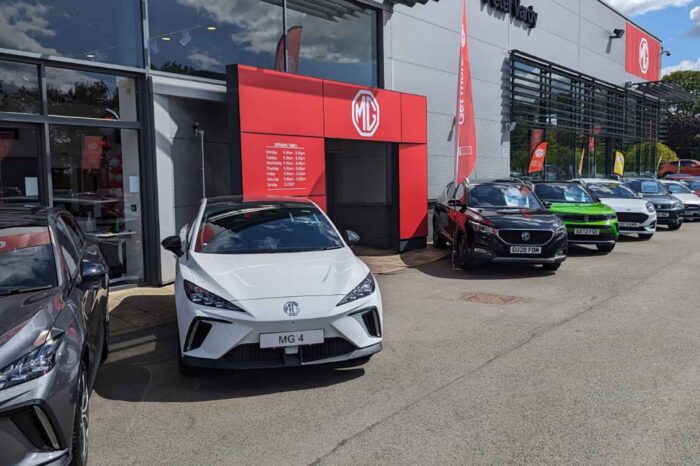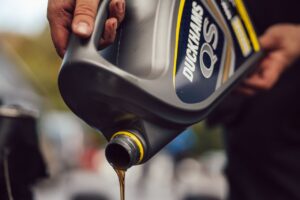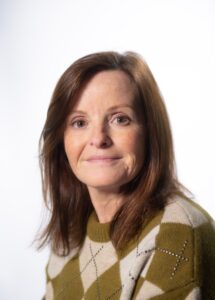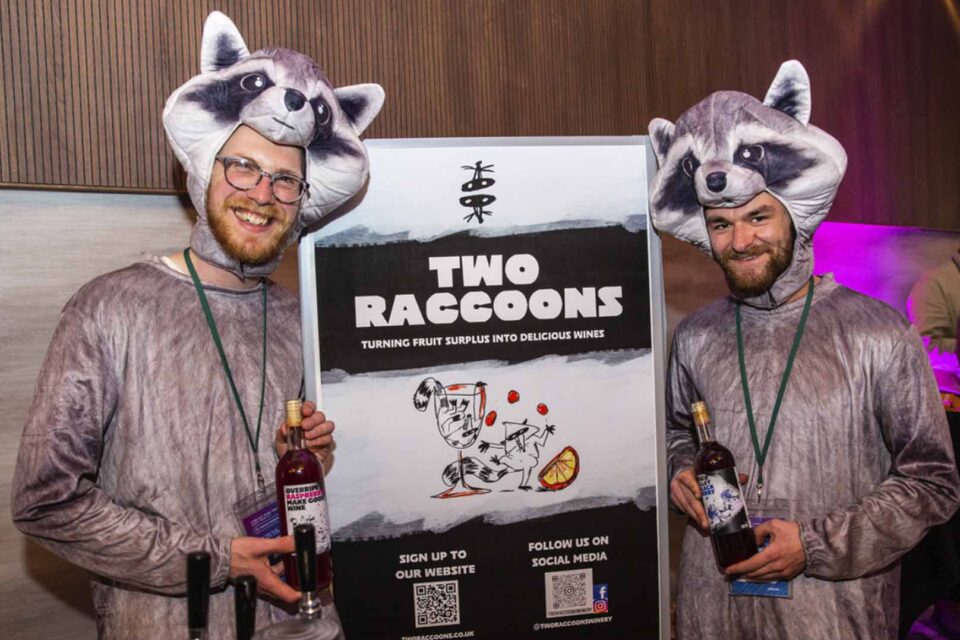
By Scott McLeod
As more countries are looking to combat the various factors that contribute to climate change, the growing levels of food waste is an issue that must be addressed. The Scottish Government has committed to reducing the country’s food waste by 33% by 2025.
Lasse Melgaard is passionate about doing his part to help lower the levels of food waste with his company Two Raccoons. Utilising surplus fruits that would have otherwise been thrown away, Two Raccoons creates a range of delicious fruit wines.
Lasse grew up in Aarhus in Denmark where after high school he developed an interest in the amount of food that was being thrown away. He later moved over to Scotland to study Microbiology at Aberdeen University as he hoped to learn more about mushroom cultivation.
He said: “After high school I was part of a mushroom growing cooperative with around 15 other young people.
We were growing mushrooms and using spent coffee grounds that we would collect from different restaurants and cafes. I think that’s where I learned the true value of all the things that we’re throwing away all the time and that there was so much we can do with it.
I thought Aberdeen was a beautiful place to just hang out. I was never interested in biology before I realised that there was so much you can do with waste materials and I think biology is the way to solve many of these issues.
So I came to Aberdeen to study but there’s also a great community of like-minded people that I met, so I’m really happy that I went there.”
Among those like-minded people was Lasse’s now business partner Elliott who also travelled to pursue his studies having moved from Belgium. The two went on to develop a unique hobby which would plant the seeds for what would become Two Raccoons.
“I found a passion for dumpster diving and I would find everything from steaks to 200 kilos of bananas that have just been chucked out. I would try to fill out my backpack as much as I could on my bike which showed me the bigger impact that we have on food waste.
There’s so much stuff going to waste for a variety of reasons. These bananas that we found were green; there were no brown spots on it whatsoever. The supermarket had just been overstocked with bananas that they thought they wouldn’t be able to sell.
During lockdown my business partner and I decided to dumpster dive more often until we had no more space in the fridge. We had to find a way to preserve all those fruits, so that’s why we started making wine out of it.
Suddenly we had 500 litres in the flat and I thought maybe I should do more of this. I actually really enjoy doing this”
Lasse learnt that the process of winemaking from leftover fruits was quite common on the 80s in the UK, where up to 1 million people were practicing winemaking at home.
The way Lasse & Elliott acquired the fruit fits into the ideology of freeganism which has gained more awareness in recent years as more people become conscious of how much food goes to waste. This idea involves living off of perfectly delicious yet discarded foods and goods in order to minimise the levels of waste.
Lasse & Elliott started sharing the wine they made with their friends who all seem to love it, giving the pair an idea that this wine could be the perfect business opportunity. However for the business to work they needed a larger amount of fruit than they had which wasn’t an easy task.
“We cold called a bunch of fruit suppliers, asking them if they had any fruits that had gone to waste. They all said ‘no we’re perfectly fine, we don’t have any waste’ so we learned that food waste is a big taboo.
No one likes talking about it which made it really difficult because there are currently no regulations to monitor food waste that is mandatory for any business. So that made it difficult to find any surplus fruit.”
The name Two Raccoons was to pay homage to Lasse & Elliott’s dumpster diving days and they felt the comparison to Raccoons was fitting as they are known to be scavengers when it comes to sourcing their food.
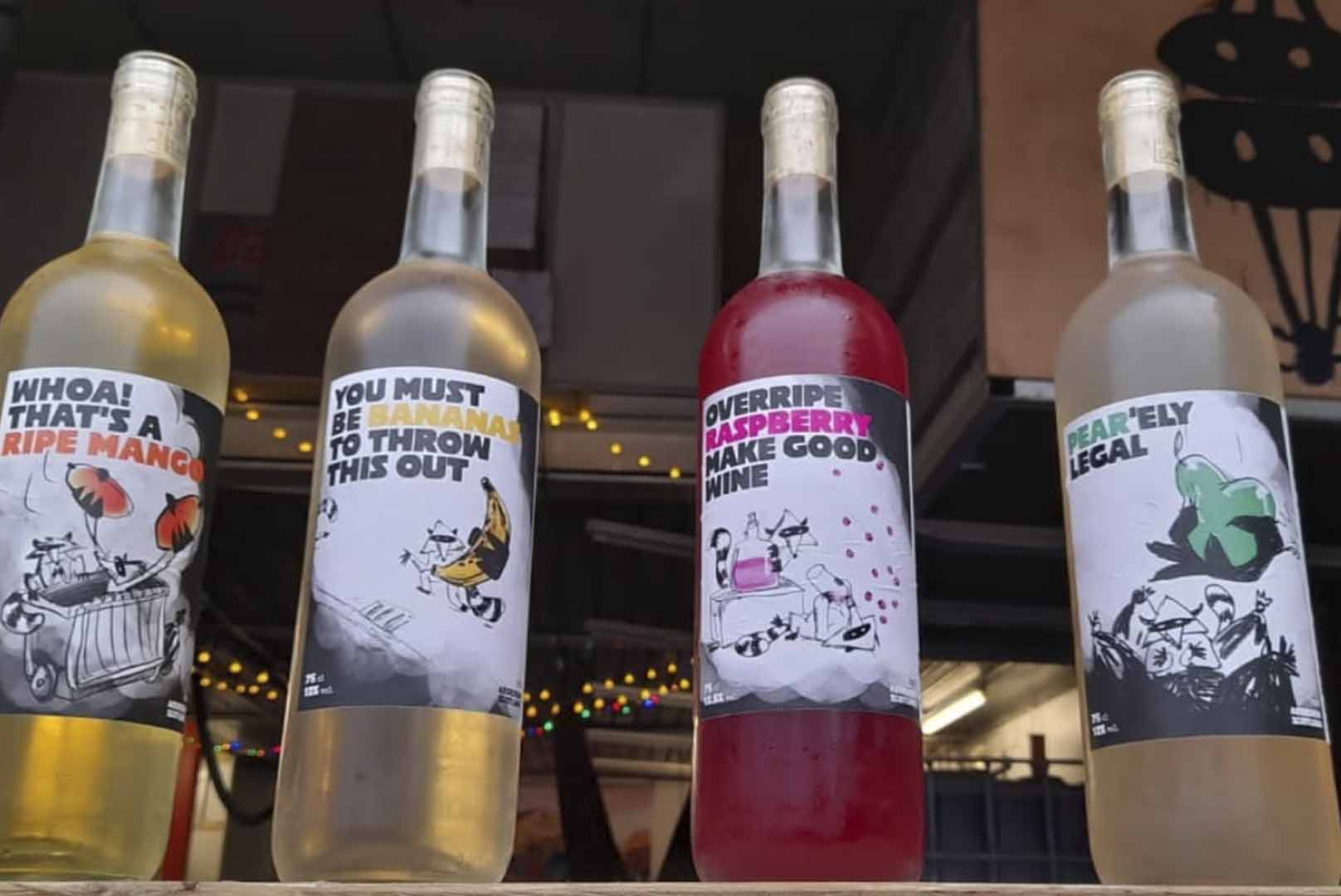
It was their hope that the name Two Raccoons would help destigmatise the way they acquired their ingredients and further open up the conversation about food waste. It is his belief that the more people discuss the issue of food waste the easier it will be to find a solution.
“It’s definitely good to talk about the problem, but we need to talk more about the solution and the solution is collaboration. If a wholesaler has a bunch of spare bananas that they don’t need any more, sometimes food banks won’t take them because they have a short shelf life.
What ends up happening is they get thrown in the bin and that’s where collaboration is key. If they called us, we could have taken those bananas before hitting the bins and have them repurposed.
It’s only through collaboration and helping to destigmatise this issue so that more companies will acknowledge that they have it and do something about it. Having food waste is not the issue; the issue is the lack of responsibility by not doing something about it before it becomes food waste.”
Over time Two Raccoons has been able to find businesses and food banks that we were willing to work with them to ensure they had plenty of fruit for their wine.
“It’s a long process and has a lot to do with credibility. In the beginning, many people didn’t believe in us because they thought you can’t make wine out of surplus fruits.
Most businesses would rather just hide the fact that they have surplus fruits rather than actually talk about it. They’re afraid of being judged for having it.
So that’s where we need to come in to take it off their hands. We are open about who we work with like when we started our collaboration with Baxter about two years ago, we talked to the media about it.
They had such a good feedback around it as well because it shows that a big business like Baxter’s actually cares about this issue. They do something about it and I think from there on we’ve had so many leads whether it’s an elderly woman who has apple trees or a bigger business who wanted to work with us.
I think that stamp of approval that a big business believes in you that helps a lot to break that stigma; it’s great to acknowledge having it and it’s even better to start doing something about it.
It’s amazing feedback that we get from all of our suppliers as well. They’re really happy working with us.”
As the business is still very young in its lifespan Lasse and Elliott are still slowly beginning to grow the team they have around them. Lasse uses his qualifications to be more involved in the brewing process while Elliott is involved in the business side of things.
Lasse recalls how he and Elliott had to be responsible for everything when they were trying to get Two Raccoons off the ground.
“We’re in charge of different projects because at Two Raccoons it’s not just making wine. It’s talking to new customers and suppliers, creating that relationship. It’s promotion, marketing, new product developments and keeping up with accounting.
So there are a million things that have to be done and there’s always more things than you can do as two people. I think we match really well and are going in a good path. I’m really happy working with Elliott.”
Lasse is so determined to stick to the ethos of Two Raccoons that if they’re running out of their supply of a particular fruit he would rather temporarily stop producing that flavour than buy the fruit through traditional means.
If the wine is not made from surplus fruit then it’s not authentic to the mission of Two Raccoons.
Recently the business became one of a few Scottish companies to receive funding from Innovate UK which Lasse believes will be the major boost that they need.
“It means so much to us, the fact that a big organisation like Innovate UK wants to see us succeed is just an amazing feeling as well. You’re going through so many struggles every day so having that bit of acknowledgement really helps a long way to keep you going.
With the financial support, we can start developing the business in ways that we really want to. Things that would have taken us years to get into, now we can do it in a matter of months. So I’m super excited to fast forward our journey and hopefully be part of that movement towards changing people’s mindsets about what we’re throwing away.”
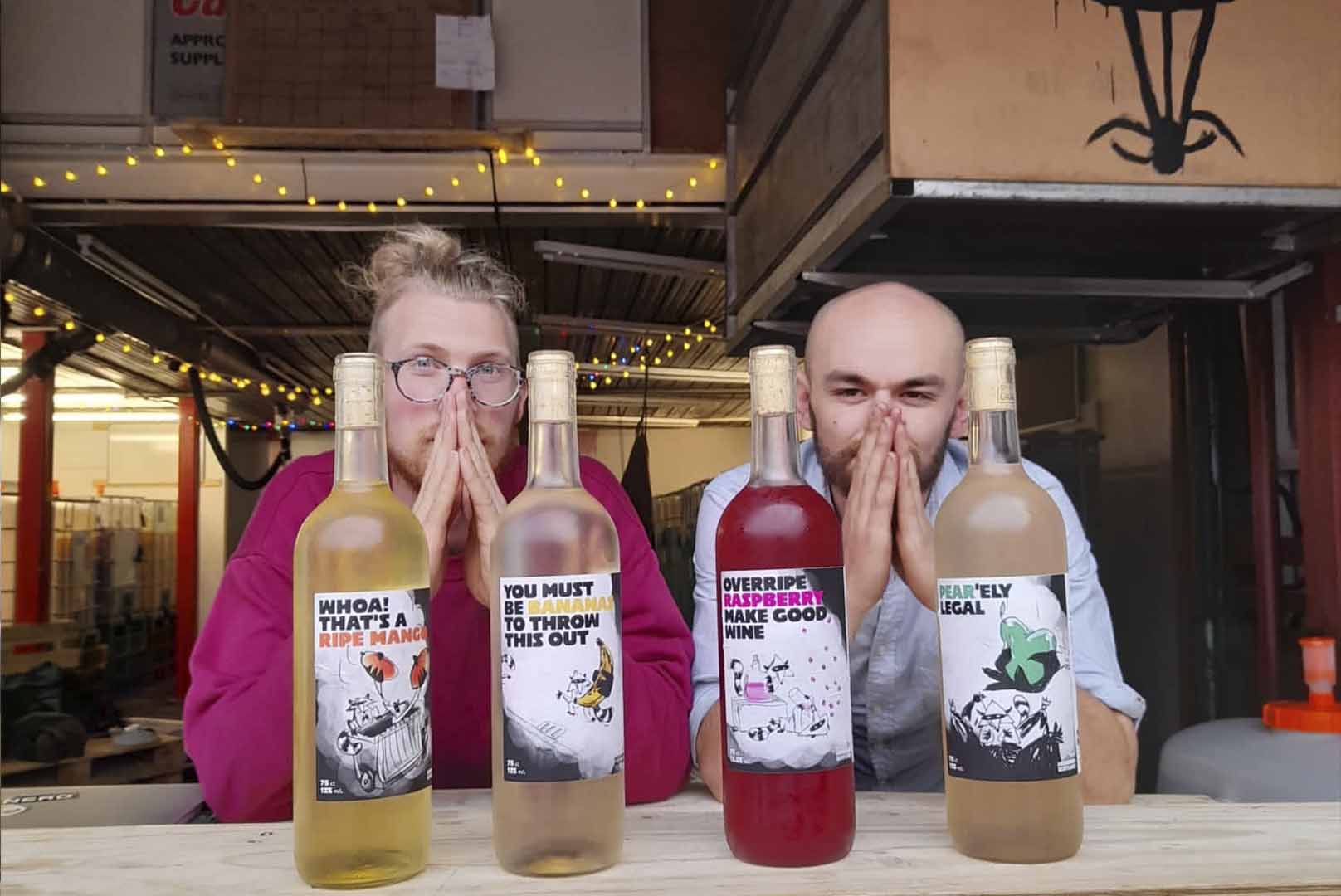
Two Raccoons have plans to launch a crowdfunding campaign in the near future with the money raised from that along with the Innovate UK funding going towards acquiring the necessary machinery that will help them process more fruit in a more efficient timeframe.
In 2021 alone they produced over 10,000 litres of wine and as the business gets more eyes on it, having the right equipment will be crucial to keep up with the demand.
For Lasse the idea of opening the conversation about food waste and inspiring other entrepreneurs is more important than making money. He believes that more entrepreneurs who are looking for a different avenue for their business should look to create something new from resources that others have thrown away.
“There are so many amazing unused resources out there, and if we can inspire other upcoming entrepreneurs to take part and think about all the things that are being thrown away all the time, like tires, plastics, mango peels. What can you do with it?
If we can make wine out of what other people would perceive as waste, what else can you do with all these things?
We started off making wine in our flat because we found so many fruits in the bins, that wasn’t planned. I had a million other things in my mind, but that just became more of a passion and it grew arms and legs.
I think there are so many ideas about, but they don’t come into fruition. So the best thing is to try it out and see, see for yourself how it feels.
You wouldn’t enjoy all the processes, but if you can find someone who can collaborate with or share skills with then go for it. No one can solve this issue alone, so don’t over think it and just take the easiest step first.”
There’s still a long way for Two Raccoons to go as a business and they have a clear idea of what their goals are for the future.
“I think the ideal future for us would be to find all the hotspots for surplus fruits and surplus ingredients. It happens in major cities across the UK but it also happens in unexpected places. So if we can find these businesses or these companies that have a lot of surplus, we can create those collaborations.
It might be that wine making is not the best solution for a specific area. Maybe it’s growing mushrooms on all the sawdust and coffee grounds that is available. So I think creating partnerships to support all these different solutions is our aim.
The main aim is to encourage more people to take part in this whole journey because we can’t do this alone. It’s a tough challenge because no one has created this path for you, so you have to create your own path.
It’s so rewarding and I would encourage more and more people to do this.”

